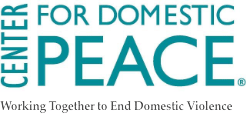LGBTQ Survivors of Domestic Violence
Resources for Lesbian, Gay, Bisexual, Transgender, Queer (LGBTQ) Survivors
Nearly 1 in 3 lesbian women, 1 in 2 bisexual women, and 1 in 4 heterosexual women has experienced at least one form of severe physical violence by an intimate partner in her lifetime.
Despite common mis-perceptions that abuse only happens between heterosexual couples, or that only women experience abuse, domestic violence is as prevalent within same sex relationships as it is within heterosexual relationships. Abuse affects people of all gender identities and sexual orientations. Year-round, C4DP’s continuum of services provides safety, support, options, and resources to survivors of all backgrounds and identities, including those who identify as lesbian, gay, bisexual, and transgender.
At C4DP, we recognize that LGBTQ survivors face multiple forms of marginality, and that violence holds the power to shift the ways that we understand ourselves, our identities, our relationship to others, and the way that we engage in the world around us.
Download our LGBTQ: You Are Not Alone Booklet here!
For anyone experiencing domestic violence, numerous barriers can affect his or her ability to seek support, report abuse, or leave the relationship. Fear of retaliation, feelings of shame about the abuse, isolation, family or cultural pressures to preserve the relationship, and a lack of financial resources are just a few of the complex factors that can impact a survivor. A person who identifies as gay, lesbian, transgender, or bisexual and is experiencing abuse may face additional barriers and types of control connected to their gender identity or sexual orientation—like fear of being “outed” to friends, family, workplace, or community; risk of being alienated from or losing one’s ties to the LGBTQ community; or fear of not being believed if he or she comes forward about the abuse because of the myths mentioned above.
Sometimes LGBTQ survivors of domestic violence express a hesitancy to reach out for help or report abuse because of a concern about bringing more negative attention to a community that is already marginalized. It can often feel hard to know where to turn, or whether supports—like domestic violence services—that have traditionally been perceived as focused on heterosexual women and their children will respond with open arms.
Each survivor’s needs, experiences, and background are unique and require individualized support that meets them where they are. Across all C4DP’s services, whether it’s responding to callers 24/7/365 on our hotlines, supporting individuals in our Emergency Shelter program, or assisting survivors with legal needs, our staff and volunteers are trained to provide support around some of the more unique barriers and challenges an LGBTQ survivor may face. As a part of the 40 hour domestic violence counselor training, and through ongoing discussion and training, C4DP’s team engages in learning about supporting LGBTQ survivors.
As with all survivors, safety planning is a critical component—helping the person think about how to stay safe within the context of his or her situation, whether it’s when the violence escalates with their current partner, if encountering an abusive ex-partner on the street, or when creating an emergency bag in case fleeing becomes necessary. For LGBTQ survivors, safety planning can include other specific considerations. For instance, for a transgender survivor who is taking hormones as part of her transition from male to female, including hormones in her emergency bag may be important to her ability to maintain her identity as she seeks safety. Or because LGBTQ communities can be small or tight-knit, with few gathering places, safety planning about where it’s now safe to go may be important to a survivor who has left their abusive partner. Advocates at C4DP support all in exploring their unique needs, thinking about their safety, and connecting with empowering resources and information.
Call one of our 24-hour hotlines for help.
415.924.6616 (English/ Linea de apoyo )
415.526.2557 (Marin Youth Services Text Line M-F, 9am-5pm)
Or 1.800.799.SAFE (1.800.799.7233) for a domestic violence program near you.
If you are thinking about hurting yourself, call the Transgender Suicide Hotline US: (877) 565-8860. The line is staffed by transgender people and is entirely dedicated to the trans community.
Click here for a complete list of resources from the National Resource Center for Domestic Violence.
Other resources, click on links:
it-takes-a-village-people-web-version.pdf
lbtg-beyond-the-wheel-tactics-handout.pdf
nwn-legaltoolkit-2013-web-version.pdf
Center for Domestic Peace is committed to equal opportunity and equal consideration without regard to race, religion, ancestry, national origin, sexual orientation, color, creed, gender, age, sizes, disability or any other protected class. You are welcome here.
